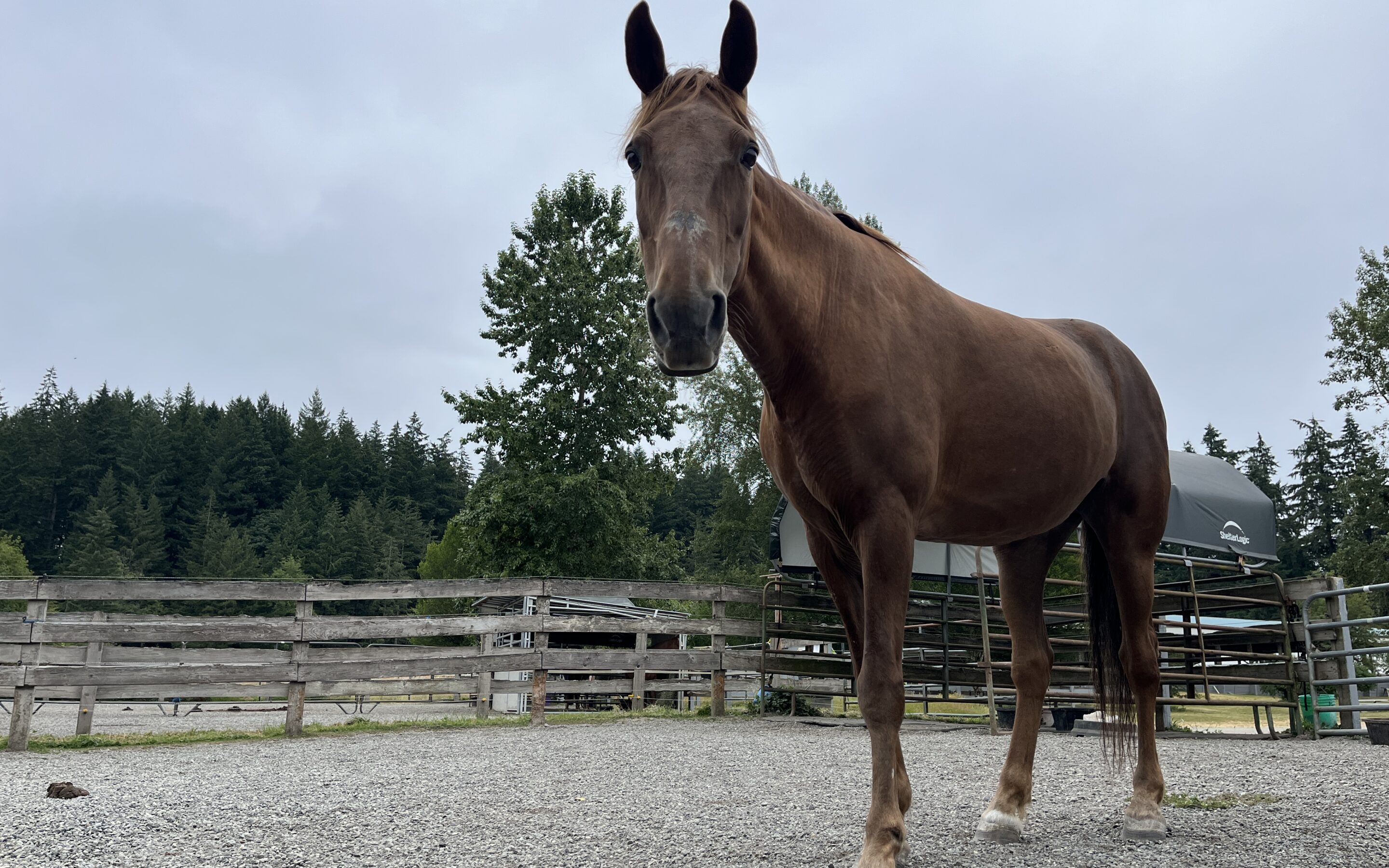A mid-90s baby, Zuri is one of the oldest members of our herd. Before her arrival, she was nursed back to health by one of Pierce County Animal Control’s amazing fosters, who brought her body condition up from the 1 out of 9 she was seized at. Considering the rough shape she began in, as well as her advanced age, Zuri came to SAFE looking if not quite like a million bucks, then not far off.
However, being a lady of a certain age does present its challenges. One afternoon, a volunteer groomer of Zuri’s went out to her paddock to give her one of the brushing sessions she had come to expect several times a week, only to find her down in her shelter. Because of her proximity to the wall, we initially believed her to be cast, but after carefully repositioning her and her reluctance to get up, we feared something else was the matter. Our vets were quickly on the scene, as her heart and respiration rates were both quite elevated. Shortly before they arrived, she did get up, but her initial steps were wobbly and uncoordinated, and her vitals remained very high. Our vets examined her and found her to be dehydrated. They gave her banamine and intubated her with fluids. Though she had good motility and gut sounds, we were advised to pull food for the night in the event that what we were seeing was a colic. We also set up one of our cameras to be able to monitor her throughout the evening.
Over the course of the next week or so, we watched Zuri carefully for signs of further episodes. We dutifully recorded her vitals multiple times each day to monitor her pain levels and kept track of her manure output each morning and afternoon to make sure everything in her GI was working as it was supposed to, and for the days immediately following the event, set alarms during the night to check on her. Thankfully, she seemed to be improving, and we were able to rest a little easier feeling that the episode was behind us.
However, a few weeks later, Zuri experienced a similar episode. A volunteer found Zuri down in her paddock, though it appeared she was resting peacefully. When they returned a little while later to feed her dinner, she was still down, and her respirations were elevated – though not nearly as significantly as they were the first time. She was hungry for her food, but did not seem motivated to get up and eat, preferring if it was placed somewhere she could reach from her place on the ground. When she did get up, she took those same baby deer steps as before, as though her legs had fallen asleep and she needed a moment to ‘walk it off.’ Her appetite was present, as were her gut sounds, which made us feel as though the cause of this behavior was not colic-related, but rather tied to a lack of physical mobility. In short, we deduced that she was getting ‘stuck’ on the ground. When we consulted with our vets, they agreed, and suggested we start her on the anti-inflammatory Equioxx, which we did ASAP.
Since that initial loading dose, Zuri scarfs up her daily Equioxx-stuffed carrot with gusto. No further episodes of her struggling to rise or getting stuck on the ground have been reported, and she has brightened somewhat in her demeanor. These days she is enjoying her time out on grass, and the multiple grooming sessions she receives weekly by our volunteers, who love this sweet old lady as much as we do!


